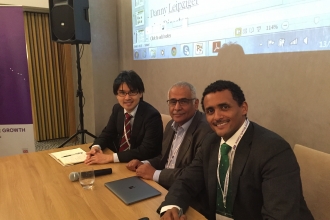In this paper, we analyze what drives farmers to disadopt green revolution technologies (inorganic fertilizer and improved seed) and whether the disadoption of green revolution technologies is related to adoption/non-adoption of other sustainable land management practices (such as farmyard manure and soil and water conservation practices). Random effects multivariate probit regression results based on rich plot level data suggest that black/brown soil type, flatter slope, shorter distance to homestead and extension centers, and access to water are negatively co
